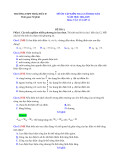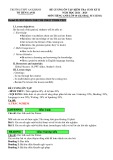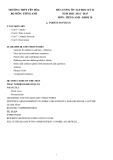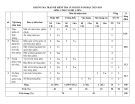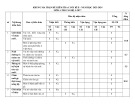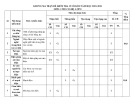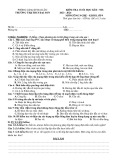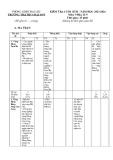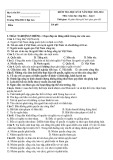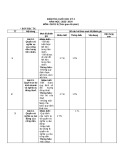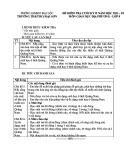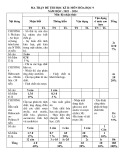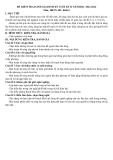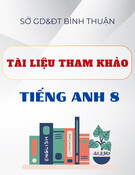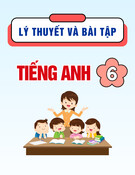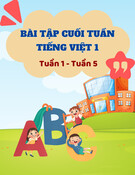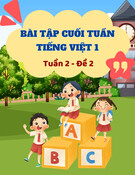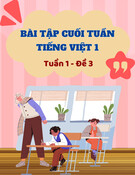
SỞ GD & ĐT HÀ NỘI ĐỀ CƯƠNG ÔN TẬP HỌC KỲ 2 TIẾNG ANH LỚP 10
Trường THPT Phúc Thọ ( Nămhọc 2023-2024)
PART A. THEORY
-Pronunciation, stress, vocabulary- Unit 6,7,8,9
-Grammar- Unit 6,7,8,9
-Reading: Topics: Ecotourism, Consumer society. A travel brochure to advertise for an ecotour, An advertisement/
announcement about a product , Education, Cultural diversity
I.CONDITIONAL SENTENCES
1. Type 1 :Có thể xảy ra ở hiện tại ở hiện tại hoặc tương lai
- If + S + V/Ves/s…………, S + will/ can + V …….
be (is/am/are)
Action -> future result
Ex: If it is nice tomorrow, we will go swimming
Other conjuntions : if, when,as soon as, unless( = if not ), before,and after
2. Type 2 :Khôngcóthật ở hiệntại
- If + S + Ved/cột 2 ….., S would/could + …….
be (were)
Ex: If he were you, he would buy that house.
II.QUANTIFIERS (TỪ CHỈ SỐ LƯỢNG)
1. Từchỉsốlượngđivớidanhtừsốnhiều
Some / any: mộtvàiMany: nhiều
A large number of: sốlượnglớn/ rấtnhiềuA great number of: sốlượnglớn/ rấtnhiều
Plenty of: rấtnhiềuA lot of/ lots of: rấtnhiều
Few/ a few: mộtvàiSeveral: vài
2. Từchỉsốlượngđivớidanhtừđếmđượcsốít:
Every: mỗi/ mọi . Each: mỗi
3. Từchỉsốlượngđivớidanhtừkhôngđếmđược:
Some/ any: mộtchút/ mộtítMuch: nhiều
A large amount of: nhiều/sốlượnglớn A great deal of: nhiều/rấtnhiều
Plenty of: nhiều/rấtnhiều A lot of/ Lots of: nhiều/rấtnhiều
Little/ a Little: mộtchút/ mộtít
***Lưu ý:
- some: dùngtrongcâukhẳngđịnh, câuyêucầu, lờimời, lờiđềnghị.
- any: dùngtrongcâuphủđịnh, nghivấn
- many, much dùngtrongcâuphủđịnh, nghivấn
- a lot of, plenty of, a great number of … dùngtrongcâukhẳngđịnh
- many, much luôndùngtrongcâukhẳngđịnhcócáctừ very, too, so, as
- few, little (ít, khôngnhiều): thườngcónghĩaphủđịnh, ítkhôngđủđểdùng
- a few / a little (mộtvài, mộtít): thườngcónghĩakhẳngđịnh, ítđủđểdùng
ĐỘNG TỪ SỬ DỤNG SAU TỪ CHỈ SỐ LƯỢNG
Sốthậpphân, phânsố, sựđolường + độngtừsốít
All, some, plenty + of + danhtừsốít + độngtừsốít
Half, part, a lot + of + danhtừsốnhiều + độngtừsốnhiều
No + danhtừsốít + độngtừsốít
No + danhtừsốnhiều + độngtừsốnhiều
A number of + danhtừsốnhiều + độngtừsốnhiều
The number of + danhtừsốnhiều + độngtừsốít
III.RELATIVE CLAUSE
1. Relative Pronouns - Đạitừquanhệ
Đại từ quan hệ Cách sử dụng Ví dụ
who Làm chủ ngữ, đại diện ngôi người I told you about the woman who lives next
door.
which
Làm chủ ngữ hoặc tân ngữ, đại diện ngôi đồ vật,
độngvật Do you see the cat which is lying on the roof?
1





